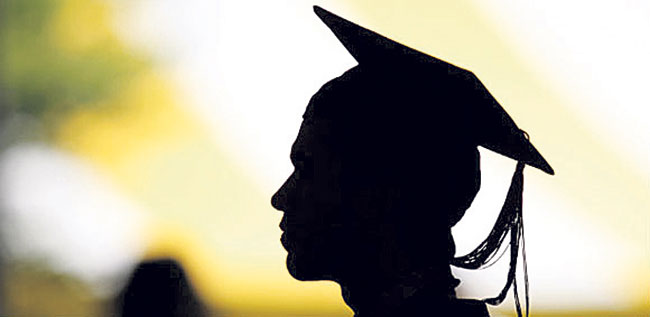More than 50 percent students in many nursing institutes in South India are now Nepalis. Many of them feel trapped
Every year thousands of Nepali students travel abroad for higher education. Despite the US being the most sought after destination, most students end up traveling to India in pursuit of higher studies. During admission season, it is common to see most newspaper ad spaces covered with attractive advertisements from different educational institutions.
According to sources, around 54 percent of the undergraduate and postgraduate seats in private engineering colleges in south Indian states went vacant in 2016-17, which comes to nearly 867,000 seats of total 1.67 million available seats. Similar is the scenario for other courses. So it is not surprising to see such Indian universities compete for Nepali students and offering huge discounts and scholarships to fill their vacant seats.
Democrats' impeachment charges say Trump 'betrayed' US

Education shapes not only a person’s future but also that of the society and the country. Education brings about permanent change in a person’s thinking and ability to do things. It is not only about getting a degree. According to a study conducted by ASSOCHAM, India, only seven percent of management graduates turn out to be employable.
An in-depth research is essential before making a final decision about an Indian university.
Similar study conducted by an employment solutions company, Aspiring Minds, New Delhi based on 150,000 engineering students, found barely seven percent suitable for core engineering job. Although there are many world-renowned Indian institutes like IITs and NITS, most of the universities that target Nepal aren’t up to the mark, with their sole intent limited to having Nepali students fill the seats which would otherwise go vacant.
Though the university representatives along with their consultancy partners in Nepal promise a lot, most don’t live up to their expectations. A nursing student (who wished to remain anonymous), currently studying in Karnataka, said that although she was excited to come to Bangalore, she was disappointed after seeing the college. She says “It is not what I expected and it is very far from the city. The place even lacks basic amenities. Even in college, it was a cultural shock for me. We are just treated like some small kids with so many restrictions. But now since I am already here, I can’t do much. My parents have already spent a lot of money and I now can’t return”.
This isn’t just a story of a single student. Many students join these institutions despite knowing about their limitations as they have few other available options. More than 50 percent students in many of such nursing institutes in South India are Nepalis. A few quit while many feel trapped, for they have already paid their fees and spent a huge amount of money. Sometimes even the Nepali embassy in India has to interfere on behalf of the students.

While the students travel that far by spending a huge sum of hard-earned money, in search of best possible education, many institutes are treating students as no more than customers for their unsold product. Bar exceptions, most universities deliver far less than promised at the time of counseling. Apart from this, every year, hundreds of universities get accreditation in India and then shut down after few years, as a result of which many young minds are left with uncertain future.
An in-depth research is thus essential before making a final decision about a university. Many Nepali consultancies, despite knowing the truth, still promote such Institutions. It’s also important for the government to take measures wherein only good universities are encouraged. Every year thousands of Nepali students travel to India to study, at great burden to the national economy. One solution is to make it easier for the private sector in Nepal to invest in education and to improve the quality of our own university education so that our students don’t have to go abroad in search of quality higher education.
The author is a correspondent with Nagarik daily







































